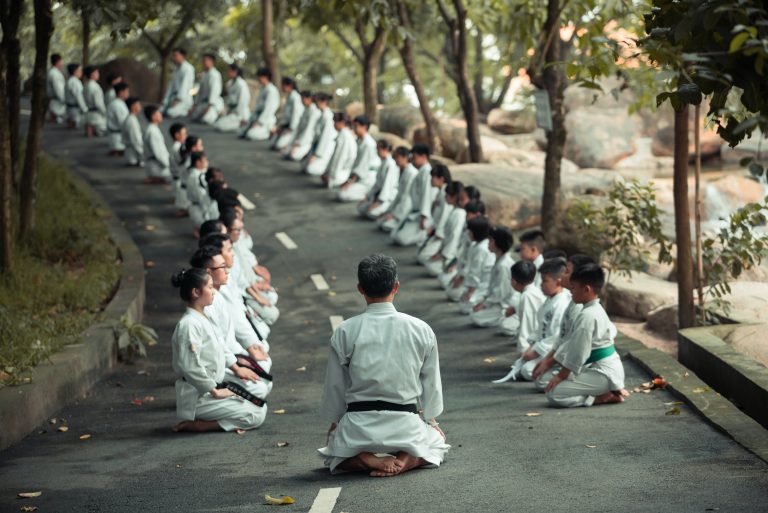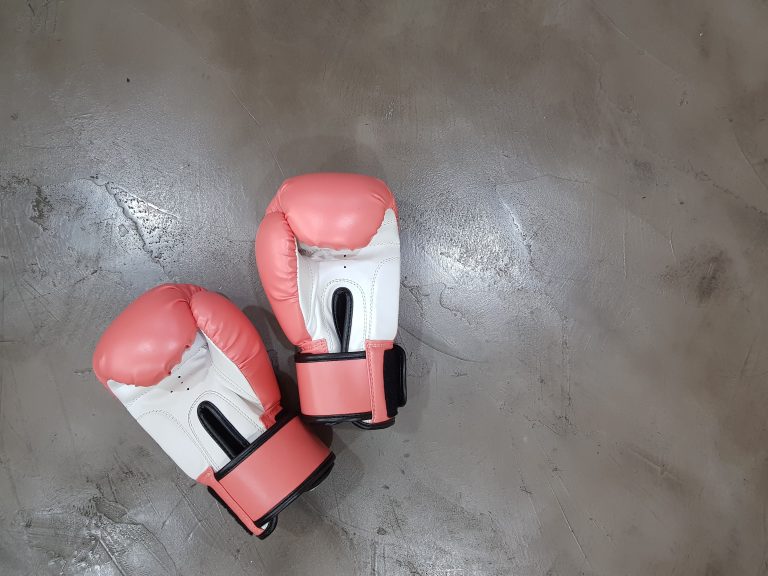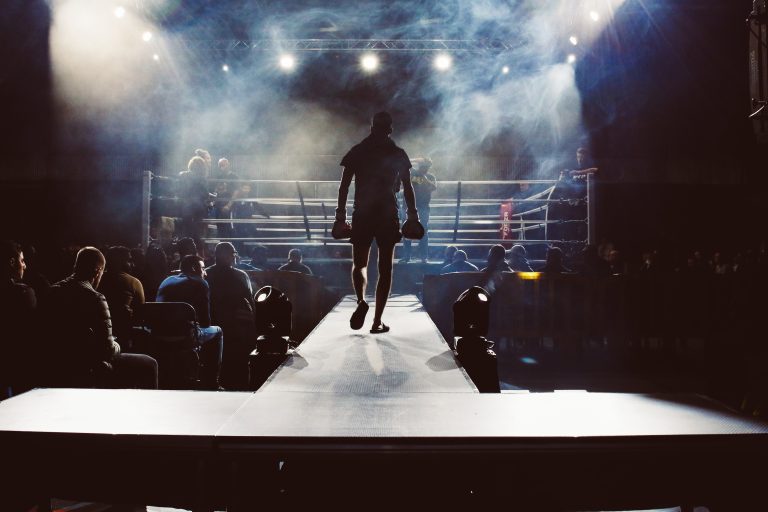Is Karate Outdated? Debunking the Myths and Misconceptions
Karate, developed in Okinawa, Japan in the late 19th century, has become a popular martial arts style around the world. However, some question whether the ancient practice is still relevant. Is karate outdated? This is a question that has been asked time and again by people who are skeptical of the traditional martial art. However, the answer is not as simple as a yes or no, and it is essential to debunk the myths and misconceptions that surround it.
The Misconceptions Surrounding Karate
Many people think that karate is just a violent activity that does not offer any real-life application. However, this is far from the truth. Karate is not just about learning how to punch or kick; it encompasses discipline, respect, and personal growth. Furthermore, many karate techniques have been adapted for self-defense, and with proper training, they can be useful in real-life situations.
One common misconception about karate is that it is outdated and has not evolved. However, this couldn’t be further from the truth. Various karate styles exist, and each has developed over time due to different factors such as competition, cultural influence, and personal preference. Many modern-day karate styles incorporate elements of other martial arts, such as Judo or Jiu-Jitsu, to create a more effective fighting style.
There is also a false belief that you need to be young, fit, and agile to train in karate. However, this is not true. Karate can be practiced by anyone, regardless of age or physical ability. It is not just about physical prowess but also mental strength, which can be developed over time.
The Relevance of Karate Today
Karate is not just for self-defense. It has numerous benefits that can help individuals develop both personally and physically. For example, training in karate can:
- Improve physical fitness
- Develop self-discipline and focus
- Boost self-confidence
- Teach respect and humility
- Improve mental health
- Enhance flexibility and coordination
Moreover, karate can be a great stress-reliever. It has been found that physical exercise can help combat stress, anxiety, and depression by releasing endorphins, which are natural painkillers that improve mood.
Even in our modern world, where weapons and firearms are prevalent, the need for self-defense skills remains relevant. Whether it is to protect oneself against robbers, bullies, or any other form of an attack, karate provides a useful set of skills that can be effective.
Karate and Sports
Another way that karate has evolved is through its inclusion as an Olympic sport. In the 2021 Tokyo Olympics, karate made its debut as a demonstration sport, and in the 2024 Paris Olympics, it will be a fully-fledged sport. This recognition by the Olympic committee highlights the relevance and importance of karate in today’s world.
Furthermore, karate competitions offer a platform for individuals to showcase their skills and provide a sense of camaraderie and community.
Is Karate Outdated? Answering the Most Frequently Asked Questions
Karate is a martial art that traces its roots back to the island of Okinawa, Japan. It has been practiced for centuries, and in recent times, has become increasingly popular around the world. However, despite its popularity, some people still question whether karate is outdated or not. In this article, we will answer the most frequently asked questions about the topic.
Question 1: Is Karate still relevant in today’s world?
Yes, karate is still relevant in today’s world. It is a comprehensive and effective self-defense system that trains both the mind and the body. Karate teaches discipline, focus, and perseverance, which are essential life skills that can benefit individuals in all areas of life. Moreover, the practice of karate can improve physical fitness, reduce stress levels, and increase overall well-being.
Question 2: Is Karate suitable for all ages?
Yes, karate is suitable for all ages. It is a versatile martial art that can be practiced by children, adults, and seniors alike. Karate training can be tailored to meet the needs and abilities of each individual practitioner. Kids can benefit from learning discipline and self-control, while adults can improve their physical fitness and mental agility.
Question 3: Can Karate be learned through online classes?
Yes, karate can be learned through online classes. With the advent of technology, many martial arts schools have started offering online karate classes. Although online classes cannot replace the benefits of in-person training, they can help beginners get started with their karate journey. However, it is essential to choose a reputable martial arts school that offers structured online classes with professional instructors.
Question 4: Is Karate effective for self-defense?
Yes, karate is an effective self-defense system. Karate teaches practitioners how to respond to and manage physical confrontations. With the right training, karate practitioners can defend themselves from attackers and potentially avoid dangerous situations. Moreover, karate training also helps practitioners develop situational awareness, which is an essential aspect of self-defense.
Question 5: Is Karate suitable for women?
Yes, karate is suitable for women. In fact, karate is an excellent self-defense system for women as it utilizes techniques that do not rely on physical strength. Karate techniques often focus on leverage and momentum, which can be used effectively by people of all sizes and genders. Moreover, karate training can help women develop confidence, self-esteem, and a sense of empowerment.
Question 6: Is Karate a sport or a martial art?
Karate is both a sport and a martial art. Karate competitions are now recognized by the International Olympic Committee, and karate practitioners can compete at regional, national, and international levels. However, karate is primarily a martial art that emphasizes self-defense and personal development.
Question 7: Do I need to have prior martial arts training to learn Karate?
No, you do not need to have prior martial arts training to learn karate. Karate training can start from the very basics and can be tailored to suit the needs of each individual student. Karate instructors can help beginners gradually improve their skill levels through structured training programs that focus on fundamentals before moving onto more advanced techniques.
In conclusion, karate is not outdated, and it is still relevant in today’s world. It is a comprehensive and effective self-defense system that can benefit people of all ages and genders. Whether you’re interested in physical fitness, mental agility, or personal development, karate can help you achieve your goals. If you’re interested in learning karate, be sure to choose a reputable martial arts school to start your journey.
How to determine if Karate is Outdated
Karate is one of the oldest martial arts in the world, and there has been an ongoing debate about its relevancy in today’s society. Some argue that its techniques are outdated, and others claim that the basic principles of karate are still applicable in modern self-defense situations. If you’re trying to understand whether karate is still relevant today or not, this guide will help you make an informed decision.
1. Understand the history and principles of karate
To determine if karate is outdated or not, you must first understand its roots and principles. Karate has evolved from ancient Chinese martial arts and was developed in Okinawa, Japan, in the early 20th century. The primary focus of karate is on self-defense, discipline, and improving one’s character.
Karate includes a range of techniques such as grappling, striking, and joint locks. Apart from physical skills, it focuses on improving the individual’s mental and emotional state through self-discipline, respect, and humility.
2. Evaluate its effectiveness in modern self-defense situations
The effectiveness of karate in modern self-defense situations depends on various factors such as the individual’s training, physical condition, and the specific situation. While some argue that karate’s techniques are outdated and no longer applicable in today’s society, others claim that its principles and concepts are still relevant.
It’s crucial to note that karate is not just about physical strength; it’s also about mental agility and quick decision-making. While some techniques may not work in certain situations, karate’s focus on situational awareness, strategy, and timing can still be useful in many self-defense scenarios.
3. Consider the role of other martial arts and combat sports
Karate is just one of the many forms of martial arts and combat sports that exist today. While it has its unique principles and techniques, other martial arts such as Brazilian Jiu-Jitsu, Judo, Kickboxing, and Boxing, have their approaches to self-defense.
Learning more about the various martial arts and combat sports can help you determine which one best suits your individual needs and preferences.
4. Research the instructors and schools
The quality of karate instruction can significantly impact an individual’s understanding and mastery of the art. When choosing a karate school or instructor, it’s essential to do thorough research and evaluate their credentials, experience, and teaching approach.
Read reviews and ask around to find out what other students think about the school or instructor to help you make an informed decision.
5. Decide if karate is right for you
In the end, the decision to take up karate or not depends on what you’re looking for personally. If your primary goal is self-defense, improving your physical and mental abilities, and character development, karate can be an excellent choice.
However, suppose you’re looking for a combat sport or martial art that is more focused on competition or physical strength. In that case, other martial arts or combat sports such as Brazilian Jiu-Jitsu, Kickboxing or Boxing, may be a better fit.
Conclusion
Karate may not be suitable for everyone, but it is still a relevant and effective martial art for those who desire to improve their physical and mental attributes through self-defense training. Consider the principles, effectiveness in modern self-defense situations, the role of other martial arts, research the instructors and schools, and decide if it’s right for you to determine if karate is outdated or not.
Inhaltsverzeichnis






